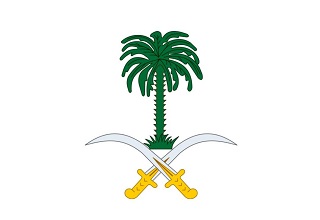Regarding the Inspection and Quarantine Requirements for Shelled Peanuts from Gambia to China
According to the provisions of the Protocol on Plant Quarantine Requirements for the Export of Shelled Peanuts from Gambia to China between the Chinese Customs and the Ministry of Trade, Industry, Regional Integration and Employment of the Gambia, from now on, the import of Gambian peanuts that meet the following relevant requirements is allowed:
I. Inspection and quarantine basis
(1) "Biosafety Law of the People's Republic of China";
(2) "Law of the People's Republic of China on Entry and Exit Animal and Plant Quarantine" and its implementing regulations;
(3) "Food Safety Law of the People's Republic of China" and its implementing regulations;
(4) "Administrative Measures for Import and Export Food Safety of the People's Republic of China";
(5) "Protocol on Plant Quarantine Requirements for the Export of Shelled Peanuts from Gambia to China between the General Administration of Customs of the People's Republic of China and the Ministry of Trade, Industry, Regional Integration and Employment of the Republic of Gambia".
II. Names of commodities allowed for entry
The peanuts (Arachis hypogaea L.) in this announcement refer to shelled peanuts produced in the Gambia, which are exported to China for processing and not for planting.
III. Permitted origin
The entire territory of the Republic of Gambia.
IV. Enterprise Registration
The peanut production and processing enterprises exported to China shall be registered with the Chinese Customs to ensure that they meet the inspection and quarantine requirements of China. The Gambia Competent Authority shall submit the list of production and processing enterprises to the Chinese Customs in advance, and register them after inspection or review by the Chinese Customs. The Chinese Customs will publish the list of relevant enterprises on the website of the General Administration of Customs.
V. Quarantine Pests
Peanuts exported to China shall not carry the following pests:
1. Caryedon serratus
2. Chrysodeixis chalcites
3. Oryzaephilus gibbosus
4. Spodoptera littoralis
5. Trogoderma granarium
6. Elasmolomus sordidus
7. Callosobruchus maculatus
8. Meloidogyne arenaria
9. Meloidogyne javanica
10. Pratylenchus brachyurus
11. Radopholus similis
12. Groundnut rosette virus
13. Cenchrus biflorus
VI. Pre-shipment requirements
(I) Production requirements.
The Gambia Competent Authority shall supervise enterprises to establish an integrated pest management system (IPM) to reduce the occurrence of pests of concern to the Chinese Customs.
The Gambia Competent Authority shall supervise enterprises to take cleaning measures such as screening during the storage and transportation of peanuts or before shipment to ensure that peanuts exported to China do not carry plant residues, impurities and dangerous, toxic and harmful weed seeds.
Each batch of peanuts exported to China shall be tested for aflatoxin limits to ensure that they meet the requirements of the Chinese national food safety standards (GB2761).
(II) Packaging and transportation requirements.
Peanuts exported to China should be transported in packaging that is clean, hygienic, unused, and free of toxic and hazardous substances. Each package should have at least one label indicating the name and registration number of the production and processing enterprise, and "从冈比亚出口到中华人民共和国的脱壳花生/SHELLED PEANUTS FROM THE GAMBIA TO BE EXPORTED TO THE PEOPLE'S REPUBLIC OF CHINA" in Chinese and English. Containers loaded with peanuts must be clean.
(III) Pre-export inspection and quarantine and certificate requirements.
Before export, the Gambia Competent Authority should confirm that the aflatoxin test results meet the Chinese national food safety standards, issue a plant quarantine certificate for peanuts that pass the inspection and quarantine, and indicate in English in the additional statement: "The consignment is in compliance with requirements described in the Protocol of Phytosanitary Requirements for the Export of shelled peanuts from The Gambia to China. It is free from the quarantine pests concerned by China", and indicate the name and registration number of the production and processing enterprise of this batch of goods, as well as the container number. Goods with live insects should be fumigated before export, and the treatment indicators should be indicated on the certificate.
VII. Entry inspection and quarantine
(I) Certificate verification.
1. Verify whether it comes from a registered enterprise;
2. Verify whether the plant quarantine certificate is authentic and valid.
(II) Goods inspection.
According to the relevant laws, regulations, administrative rules, and rules, peanuts will be inspected and quarantined in accordance with this announcement, and will be allowed to enter the country after passing the inspection.
(III) Disqualified treatment.
1. If there is no valid plant quarantine certificate, it will be returned or destroyed;
2. If it comes from an unregistered enterprise, it will be returned or destroyed;
3. If genetically modified ingredients not approved by the Chinese government are found, it will be returned or destroyed;
4. If aflatoxin and other safety and sanitation items exceed the limit of China's national food safety standards, it will be returned or destroyed;
5. If harmful organisms of concern to the Chinese Customs are found, it will be allowed to enter the country after passing the pest control treatment; if there is no effective pest control method, it will be returned or destroyed. If other quarantine harmful organisms are found, they will be handled in accordance with the relevant provisions of the "Law of the People's Republic of China on Entry and Exit Animal and Plant Quarantine" and its implementing regulations.
If the above-mentioned unqualified situations are found, the Chinese Customs will notify the Gambia Competent Authority and take measures such as suspending the relevant enterprises' qualifications to enter China according to the severity until the Gambia Competent Authority takes effective improvement measures.
GACC
July 16, 2025




